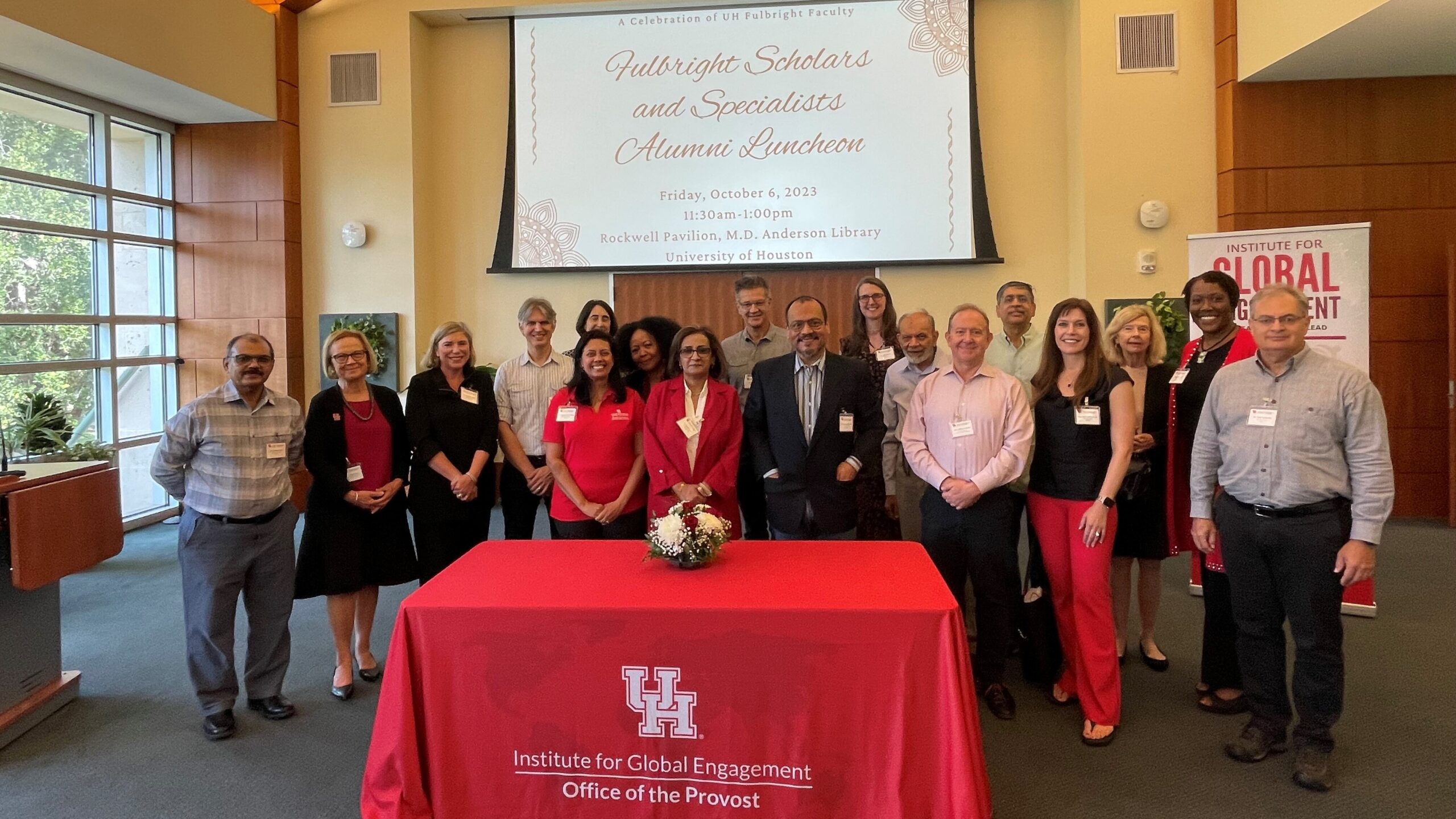
University of Houston (UH) joins a group of Hispanic-Serving Institutions across the nation that have been named as Fulbright HSI Leaders in each of the three years since this initiative was inaugurated in 2021. The Fulbright HSI Leader designation recognizes the university’s noteworthy engagement with Fulbright Program--helping its U.S. students and faculty apply for and receive Fulbright awards to study and teach abroad, as well as hosting visiting foreign Fulbright students and faculty in Houston.
Separately, the university has also been named as a Top Producing Institution for the Fulbright U.S. Student Program in 2022 and 2023, for sending the highest number of their recent alumni and graduate students abroad as Fulbrighters.
“The University of Houston strives to ensure an environment of inclusion and success for all,” said university President Renu Khator. “This recognition is yet another milestone that reinforces what so many already know about our institution … that our students are supported both culturally and academically.”
The dual recognition as a Fulbright HSI Leader and a Top Producing Institution signals that University of Houston has succeeded in creating a “Fulbright culture” on campus, according to former Ambassador Michael Pelletier, who became the inaugural executive director of UH’s Institute for Global Engagement in 2021.
“Fulbright culture at UH is very much tied to the efforts of an amazing team spread throughout campus,” said Pelletier. He credits “the superb and engaged network of Fulbright alumni and faculty across the University” for this success, acknowledging Dr. Ben Rayder, Executive Director of the Office of Undergraduate Research and Major Awards in the Honors College and colleagues in the Faculty Engagement and Development office in particular.
Pelletier notes how important it is to recognize the achievements of Fulbrighters on their campus, such as honoring them with a luncheon with special remarks by Provost Diane Chase.
He also commented that the Fulbright Program enhances learning and research experiences for students and faculty that expand the University’s international footprint. Many faculty members maintain lasting partnerships and connections long after they return, transforming campus teamwork into international teamwork.
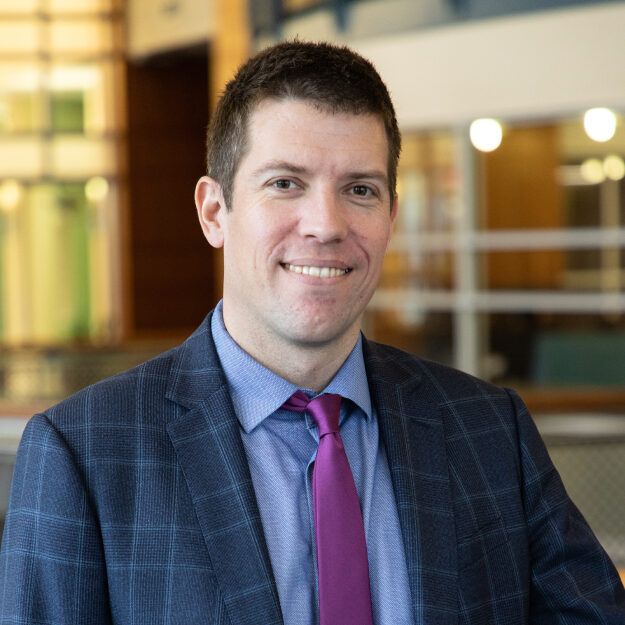
The university has made a significant investment in helping students learn about and apply to fellowships and scholarships that create cross-cultural learning experiences. Ben Rayder is a professor in UH’s Honors College, and leads the Office of Undergraduate Research and Major Awards (OURMA) where he serves as the Fulbright Program Adviser. He is himself a Fulbrighter, having served as a Fulbright English Teaching Assistant in Germany in 2009 before earning a master’s and a doctorate from universities in the UK and Germany.
When Rayder joined the university in 2017, University of Houston students had received a total of 35 Fulbright awards in the previous fifty years. In just six years since he joined, over 50 have been selected for Fulbright awards.
He said the students at the University of Houston are exceptional candidates for the Fulbright Program. “They bring real-life experience to their applications, whether they are working part-time to pay their tuition or are the first in their family to attend college.”
The University of Houston is one of the most diverse schools in the country, reflecting both the Houston community and the diversity of the United States.
To reach a broad applicant pool at a school of more than 46,000 students, Rayder has a comprehensive approach. He builds relationships with faculty and staff across the university. He sends targeted emails to communications directors, faculty, department chairs, and others to spread the word about the Fulbright Program, and organizes campus committees to interview and help advise students. He also recommends that faculty volunteer to serve on Fulbright’s National Selection Committee, to help them gain insight into the program.
In 2021, Rayder told University Business News that it is his goal for “the University of Houston to be the Texas school that ultimately produces the most Fulbrights. I think that’s something that we can definitely attain.”
To meet these lofty goals, Rayder works diligently with students throughout the year, and celebrates their success. He says it is important to start reaching out to students early, distributing Fulbright materials and invitations to an annual Fulbright Day where potential applicants can hear from students who have been selected as Fulbright finalists for the current year. He helps students identify the specific Fulbright opportunities that are right for them and advises them throughout the application process.
“Our students are very modest, very humble,” Rayder says. “They don’t always see themselves as competition for these types of opportunities when they hear the words ‘prestigious, merit-based and competitive.’” But Rayder argues that the diversity of the student population at the University of Houston has been one of their greatest strengths, and the numbers bear it out: “We’re perfect for this.”
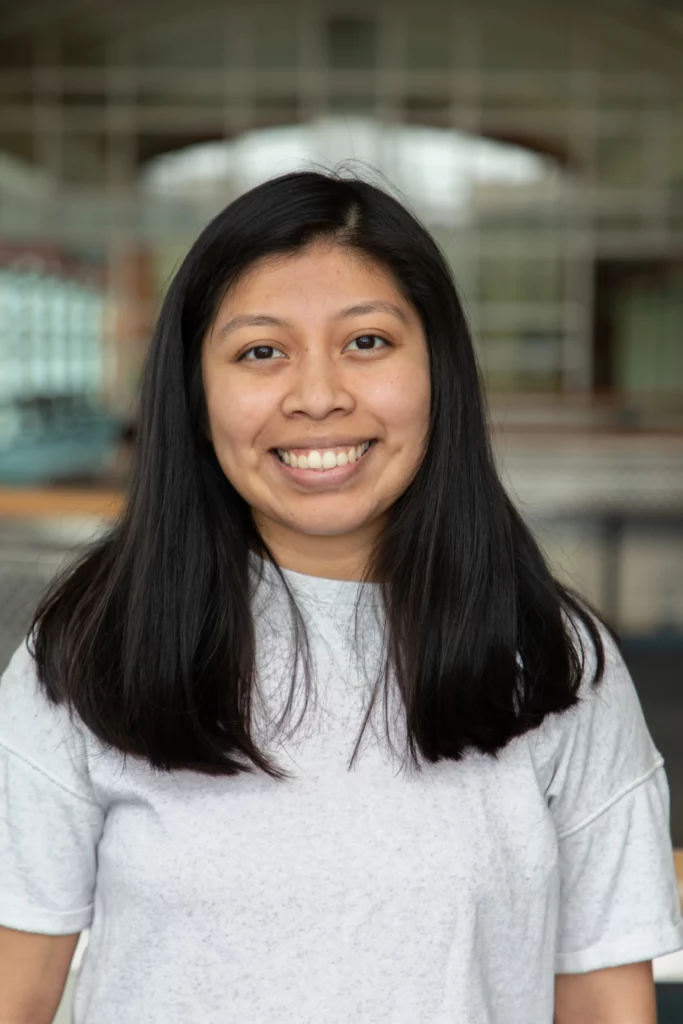
UH’s institutional teamwork and Ben Rayder’s guidance helped Sandra Tzul find the right Fulbright Program for her interests in the complexities of Latin communities and education. Tzul was a Fulbright English Teaching Assistant (Fulbright ETA) in Mexico from 2022 to 2023. A first-generation Guatemalan American, Tzul discovered her passion for teaching as a summer teaching fellow at Breakthrough Houston, and has also worked on documenting oral histories of Houston’s Latinx communities.
As more students have applied for and received Fulbright awards each year, Rayder noted that word of mouth goes a long way. “As more prospective candidates have seen their peers applying for and receiving Fulbright awards, we have seen the emergence of a tangible culture of success.”
University of Houston leaders have said that having faculty with Fulbright experience brings the benefits of international teamwork between institutions back to campus. This global educational outreach contributes towards campus internationalization efforts and further solidifies the university’s position as a top tier institution.
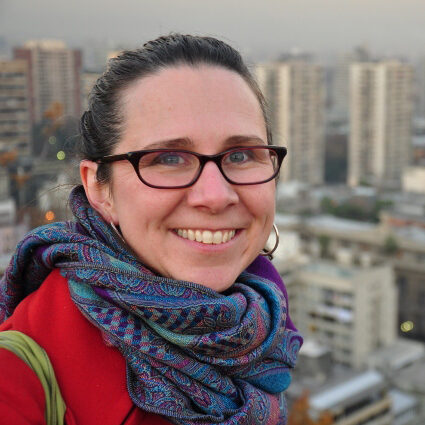
For example, Dr. Catherine Horn, the Dean of the College of Education, spent six months in Chile in 2012 as a Fulbright Scholar and continues to collaborate with colleagues there about one of her passions — finding ways to help low-income, historically underrepresented students succeed in higher education.
Dr. Horn applied for a Fulbright to compare admissions strategies in Texas, California and Florida with similar tactics implemented in Chile. She proposed Fulbright research to understand whether the programs there had similar impacts on expanding access and success for financially vulnerable students. In the decade since returning from her Fulbright, her collaboration with her colleagues in Chile has been fruitful, leading to substantial publications showing that strategic information, loans, and grants helps students in both countries to access college.
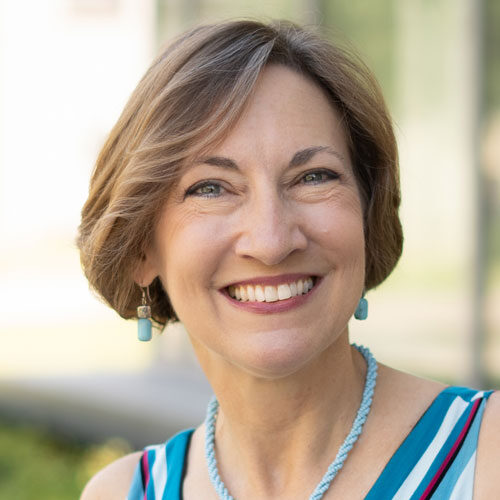
She learned from her Fulbright experience that “people are generous with their willingness to share knowledge and support.” Back on campus, she considers it “an opportunity and a privilege” to share her own knowledge with her colleagues and students back in Houston.
University of Houston faculty have also served as Fulbright Specialists, who are selected to take part in short-term exchanges to help institutions outside of the United States to build their expertise. Jamie Belinne, an associate dean in the College of Business who helped establish the Office of Experiential Learning, is sharing her valuable expertise as an innovator in career services in Poland this fall. “Most universities recognize that a professional career center is important for its students, but these units are often under-resourced and given limited support,” Belinne said. “As a Fulbright Specialist, I can take best practices across borders.”
Beyond having their own faculty participate in Fulbright opportunities abroad, the university has also found that hosting international faculty helps it to develop forward-thinking global citizens equipped to excel in this increasingly inter-connected world. “We aim to embed globally relevant topics within all academic programs and disciplines at the University of Houston, and the Fulbright Program offers such valuable support for engaging with different cultures, exchanging ideas, and truly making an impact around some of the most pressing areas of concern around the world,” said Pelletier.
With UH’s Fulbright culture and teamwork mindset between faculty and administration, history professor Alexey Golubev reached out to the Fulbright Commission in the Czech Republic about hosting a Fulbright Scholar-in-Residence, with the specific goal of building University of Houston’s expertise in Eastern European and Jewish Studies. Although the University of Houston serves students from diverse ethnic and cultural backgrounds and Texas is home to Czech and other Eastern European cultural communities, they did not have many course offerings in these areas.
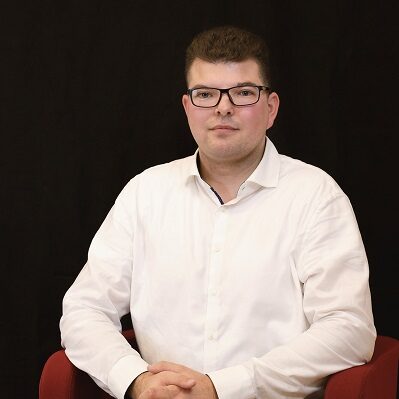
Golubev said the Fulbright Scholar-in-Residence, Dr. Ivan Puš, developed and taught new courses at UH, while also conducting valuable outreach to Czech cultural institutions and Houston-area museums, including the Houston Holocaust Museum, where he delivered a popular lecture. These engagements led to stronger community ties and greater visibility for the university. They had the added benefit of opening the door for Golubev to develop an internship program at one of the museums, providing new opportunities for students both on and off campus.
Hosting this impressive Scholar-in-Residence, along with numerous other visiting scholars over the years, is just one more way that University of Houston has taken a campus-wide approach advancing its internationalization goals through its “Fulbright culture.”